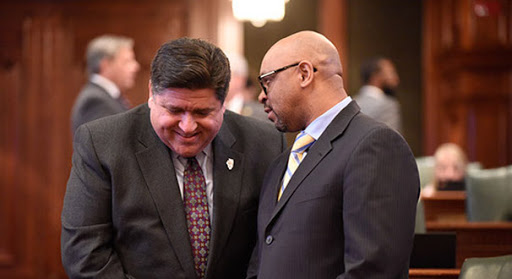Illinois Department of Public Health to Publicly Report Vaccine Recipient Demographics
CHICAGO – Building on efforts to ensure equitable administration of the COVID-19 vaccine, Governor JB Pritzker and the Illinois Department of Public Health (IDPH) announced an expanded partnership with Federally Qualified Health Centers (FQHC) across the state to administer the COVID-19 vaccine. The partnership will direct vaccine from the state’s allocation to select FQHCs beginning in March. This builds on a federal program that will begin with 25 FQHCs in certain states and ultimately expand to hundreds of FQHCs across the nation to administer vaccines to underserved populations including the homeless, migrant workers, public housing residents, and those with limited English proficiency.
IDPH will also begin publicly reporting demographic data on vaccine administration including race and ethnicity. Since moving from Phase 1A to 1B this data has shifted to more closely reflect the overall demographics of the state, but work remains to ensure communities of color are fully represented. For more information visit: http://dph.illinois.gov/covid19/vaccinedata.
“Starting in March – when we expect increased vaccine supply – Illinois plans to provide a specific increased set aside vaccine allocation for our federally qualified health centers as part of our continuing effort to reach those who may not have a primary care provider or who are most challenged when it comes to healthcare access,” said Governor JB Pritzker. “This is another step in my mission to weave equity into every one of our goals when it comes to this vaccine rollout – I’ve said since the beginning that what we can’t do is let the vaccine distribution exacerbate inequities that existed long before COVID-19 – inequities that I’m committed to eliminating. We need to continue to move thoughtfully through this health crisis to overcome the disadvantages too many people have lived with in our healthcare system for far too long.”
“We have made equity a priority at every step of our Vaccine Administration Plan, but as we saw minority populations disproportionately impacted by COVID -19, we are also seeing disparities in vaccination,” said IDPH Director Dr. Ngozi Ezike. “By enlisting providers who work in communities hardest hit by the disease, we hope to reduce disparities and increase vaccination rates across all populations. While we are doing that, we also need to continue with community engagement to increase acceptance.”
To ensure that communities hardest hit by the virus have access to the vaccine, Federally Qualified Health Centers (FQHCs) in Illinois will begin directly receiving vaccine from the federal government. Illinois has been working with local health departments across the state to provide vaccine to 26 FQHCs and this new federal program will further expand those administering the vaccine. FQHCs often serve individuals who are living at or below the federal poverty level, as well as racial and/or ethnic communities.
Beginning the second week of March, the state will begin allocating vaccines directly to FQHCs. Initially, the state will expand its partnership to FQHCs in counties where vaccine administration is lowest, before partnering with additional FQHCs statewide. By allocating vaccines directly to the centers, residents in underserved areas will have the ability to receive vaccines more quickly from trusted providers, and counties will hopefully experience a decrease in the disparity between which populations are vaccinated.
This partnership with FQHCs builds on deliberate efforts by the administration to ensure equity is at the center of the Vaccine Administration Plan. When the federal government recommended vaccine coverage for only those 75 and older, the state announced it would allow those 65 and older to be vaccinated. This follows data that shows that while the average white person in Illinois who died of COVID-19 passes away at age 81, the average age at which Black Illinoisans die of COVID is 72, and for Latino Illinoisans it’s 68. Ultimately, the CDC agreed with Illinois and changed its federal guidelines to match ours.
Earlier this week, the governor also announced that the state will move to an expanded Phase 1b on February 25, which will include individuals with underlying conditions and those with disabilities. This will ensure our most vulnerable populations, in which people of color are over represented, will have access to the vaccine as quickly as possible.
Later this month, Illinois will launch a multimedia, statewide advertisement campaign designed to overcome vaccine hesitancy and encourage all Illinoisans to get vaccinated when it is their turn. This campaign will specifically work to reach communities of color in order to address centuries of justified mistrust in the health care system.
Vaccine demographic data related to race and ethnicity, age, and gender will be available on the IDPH website. The data, which is updated daily, is based on statewide numbers with age demographics available on the county level. IDPH receives demographic data directly from vaccination centers across the state including local health departments, FQHCs, and pharmacies. To view the data, click here.
Beginning February 25th, Illinois will expand Phase 1B vaccine eligibility to people who have comorbidities and underlying conditions as defined by the CDC as well as individuals with disabilities. For information on vaccine eligibility, nearby vaccination sites, information on how to make an appointment to receive the vaccine, and answers to frequently asked questions about the COVID-19 vaccine, go to https://coronavirus.illinois.gov/s/.


